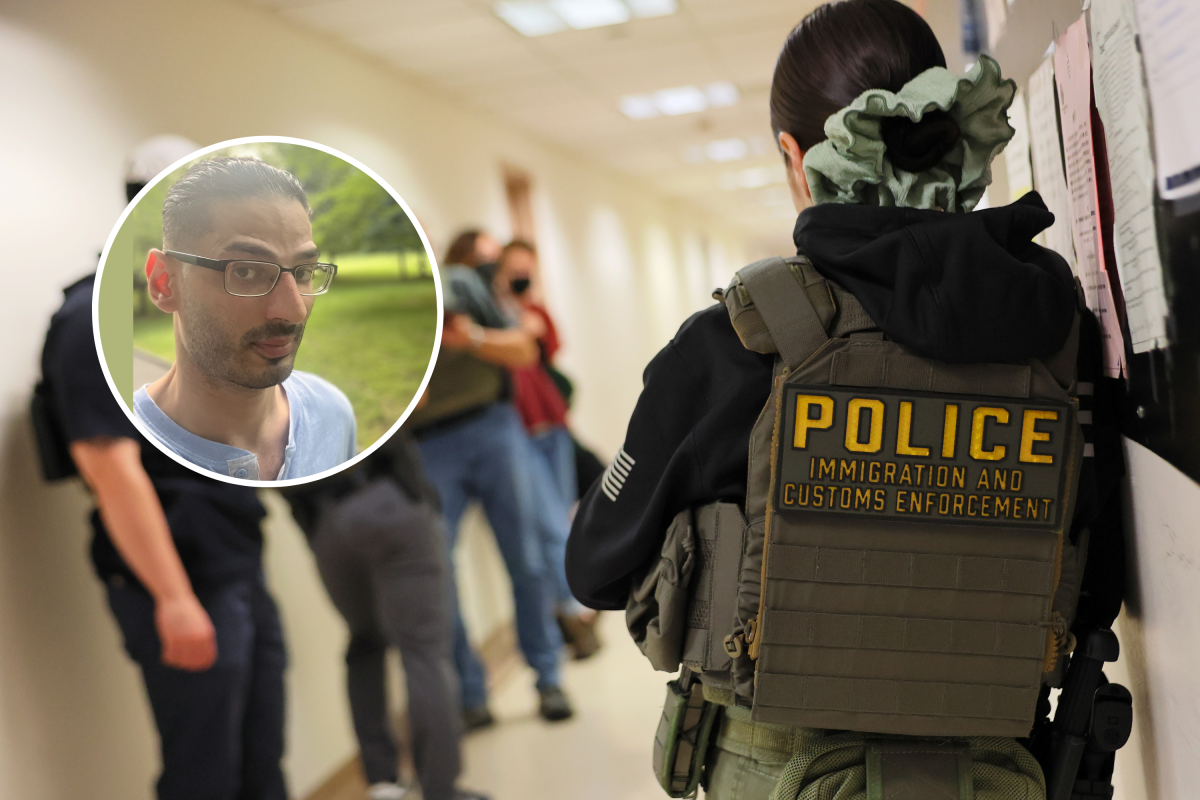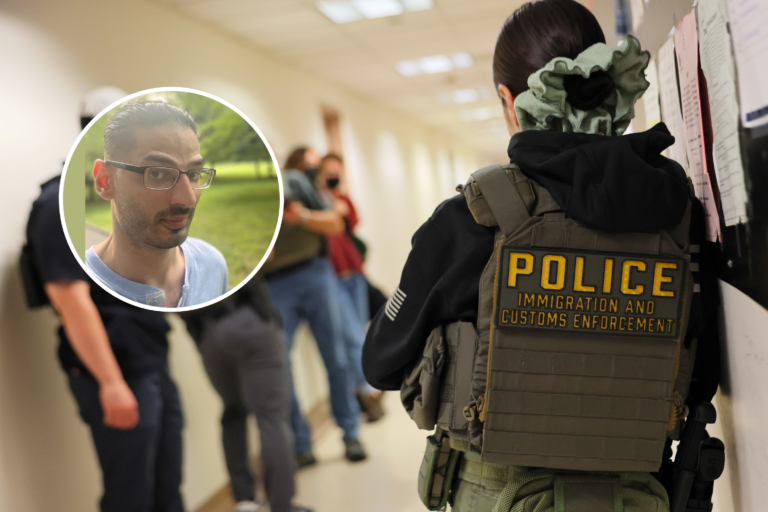Karem Tadros, who has lived in the United States for more than 30 years after immigrating from Egypt with his family, who are all U.S. citizens, faces deportation to an unspecified country following his release from U.S. Immigration and Customs Enforcement (ICE) in New Jersey, he told Newsweek in a Friday phone interview.
Newsweek has reached out to ICE for comment via email on Friday.
Why It Matters
Tadros, who was detained from early May until mid-June, has been released but is still awaiting final court orders regarding his deportation status to a third country.
His detention comes amid an immigration crackdown under the Trump administration. In addition to people residing in the country illegally, immigrants with valid documentation—including green cards and visas—have been detained and face legal jeopardy.
President Donald Trump has pledged to carry out the largest mass deportation operation in U.S. history, and in the initial months of his second term, his administration has deported more than 100,000 people. Many migrants have been deported as a result of Trump’s invocation of the Alien Enemies Act of 1798, which grants the president authority to deport noncitizens without appearing before a judge, among other wartime authorities.
The Trump administration has held discussions with several countries about taking in U.S. detainees who lack legal status and cannot be returned to their home countries due to safety risks or fears of persecution.

Michael M. Santiago/Getty Images
What To Know
On May 7, federal immigration officials detained 39-year-old Tadros. He told Newsweek in a phone call that agents arrived at his house, asking for Tadros, stating they had a warrant for his arrest and that there was an “administrative problem in their office that needs to be taken care of.” They reportedly told him he would be gone for an hour.
Tadros said they did not arrest him while he was walking out of the house to the unmarked agents’ car. Once he was in the car, the agents reportedly informed him that he had a final deportation order.
He then spent over a month at the Elizabeth Contract Detention Center in New Jersey, according to court documents reviewed by Newsweek.
Tadros says he has a current work permit set to be renewed in August.
He came to the U.S. as a young child, just over 3 years old, his attorney, Simon Sandoval-Moshenberg, told Newsweek in a phone interview on Friday. He said he came to the U.S. on March 17, 1989. Tadros told Newsweek he was told he came at age 4, but also in the year 1989.
Tadros’ family members, an older brother, mother, and father, all obtained U.S. citizenship, he told Newsweek.
“All the members of my family are U.S. citizens. They’re all supporting me. We’re all equally shocked,” he said.
His citizenship process was halted due to his 2006 conviction, telling Newsweek it was for “intent to distribute oxycodone.” He said, “I was on the right path. I made a terrible mistake when I was younger.”
He spent six days in a county jail and was released on bail, completing his probation afterwards, he said. “Because of that, I was detained at Hudson County facility for 13 months. And I was released by the judge on a court date with no supervision, no nothing. So 17 years go by, now it’s 2025, I haven’t seen a single ICE officer since I was detained back in 2008, 2009,” he added.
In those legal proceedings, a judge found he would face persecution if he were deported to Egypt, thus ruling against it. “The government appealed that decision, and the Board of Immigration Appeals affirmed that decision in April of 2009,” Sandoval-Moshenberg told Newsweek.
Both Tadros and his lawyer told Newsweek that he is at risk of persecution because of his religion and lack of language knowledge. Tadros told Newsweek he has “a Jesus tattoo on my right shoulder.” There are an estimated five to ten percent of the Egyptian population identifying as Christian.
The administration isn’t trying to change that ruling, and instead is looking to send Tadros to a third country.
On June 16, Tadros was granted a Writ of Habeas Corpus, as U.S. District Judge for the District of New Jersey, Evelyn Padin, found the “petitioner has remained in perfect compliance with the conditions of release dictated in the April 9, 2009 Order of Supervision.”
The judge found it was “unlawful” for the government to keep Tadros detained and ordered his release.
The judge’s order stated that “ICE may identify a third country within thirty to sixty days of this order to which the Petitioner may be removed.” The judge denied the Trump administration’s request to place an ankle monitor on Tadros. He must stay within the tri-state area.
During his June court proceeding, Tadros first learned of the possibility of being sent to Uzbekistan. His lawyer told Newsweek that’s also when he found out that Sudan and Libya rejected his case.
Hundreds of people have been sent to third-country locations. More than 200 Venezuelan nationals accused of gang affiliations were transferred to El Salvador, where they were imprisoned in the country’s high-security mega-prison.
The administration has also attempted to deport migrants to more unstable nations, including Libya and South Sudan, despite concerns over widespread violence and human rights conditions. These efforts have faced legal challenges, with U.S. courts blocking transfers to such conflict zones for now. The Trump administration has defended the use of third-country deportations as a necessary measure to deter unlawful entry and ease pressure on the U.S. immigration system.
What People Are Saying
Assistant Homeland Security Secretary Tricia McLaughlin previously told Newsweek: “The Trump administration is enforcing immigration laws—something the previous administration failed to do. Those who violate these laws will be processed, detained and removed as required.”
What Happens Next
The Trump administration has just under 60 days to confirm a country for Tadros’ detention.


